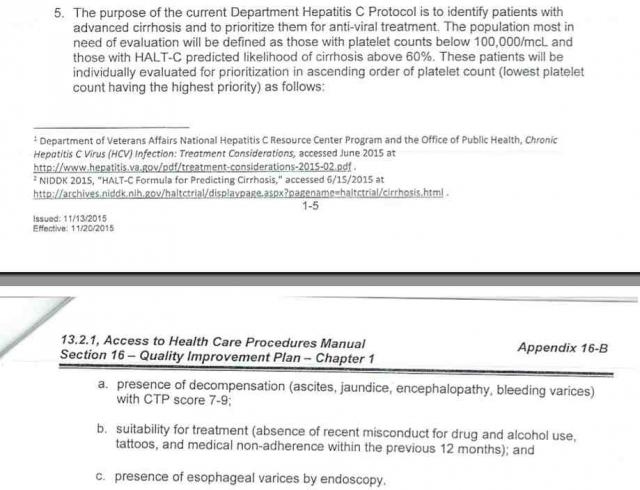Following three days of contentious testimony in a courtroom in Scranton, PA late last month, a federal district judge is considering a legal petition by Pennsylvania’s most well-known prisoner Mumia Abu-Jamal for a finding that the state’s long-running refusal to treat his active case of Hepatitis-C, a potentially fatal disease, violates his Eighth Amendment right not to be subjected to cruel and unusual punishment.
Over the past 16 months Abu-Jamal has suffered an array of symptoms and ailments, from a serious skin condition to diabetes that witnesses at trial testified were symptomatic of and likely caused by an active case of Hep-C. It’s an infection the state has known him to have in his body since a blood screening test taken in 2012 when he was first transferred off of death row and placed into a general population prison following the overturning of his 1982 death sentence.
The Pennsylvania Department of Corrections (DOC) tried initially to prevent the hearing, claiming that Abu-Jamal had not “exhausted” the department’s grievance procedures, and that his complaint about non-treatment was defective, for example because he had not explicitly named all of the doctors who had seen him. but Judge Robert Mariani was dismissive of those dilatory arguments and after rejecting them, ordered that the hearing on the injunction go forward.
During subsequent testimony by several DOC witnesses, including executives from Corizon, the controversial private Tennessee-based contracting firm that is supposed to provide medical services to the state’s prisons, and from the DOC itself, it was revealed that for 22 months until last November, the state DOC had no guidelines for treating the raging Hep-C epidemic that afflicts as many as a quarter of the state’s prison inmates (Hep-C is at epidemic proportions in all the nation’s prisons and jails). It was also disclosed that the DOC attorney, Laura Neal, had in her possession at the defense table a copy of a new treatment “protocol” drawn up in November, the existence of which the state had not even informed the court or Abu-Jamal’s attorneys. She said she had planned to use the document in questioning her witness, but had not intended to enter it into evidence.
When Abu-Jamal’s attorneys Bret Grote and Robert Boyle, and the judge, asked for a copy of that document, Neal sought to keep it sealed, ultimately explaining that the DOC didn’t want it to be disclosed publicly for fear that it would be used by another legal team that is currently pursuing a class action suit in a court in Pittsburgh against the DOC on behalf of all inmates in the state with Hep-C.
Again the judge was unsympathetic and ordered the document released immediately.
 PA Dept. of Corrections protocol for (non) treatment of prisoners with critical Hep-C infections
PA Dept. of Corrections protocol for (non) treatment of prisoners with critical Hep-C infections
That document proved to be stunning in its callous barbarity. As Abu-Jamal’s attorney Grote explained in an interview last Wednesday on PRN.fm’s weekly “This Can’t Be Happening!” radio program, the DOC’s new Hep-C treatment protocol states that the department “won’t consider treatment until there is evidence of advanced cirrhosis…permanent irreversible organ damage that carries with it the risk of death.” He went on to say the protocol then adds a second hurdle before treatment: “They require an endoscopy looking for something called esophageal varices…a condition where the blood vessels of the esophagus are literally about to burst. If there’s no esophageal varicies, they continue to refuse Hep-C treatment and just say to test for esophageal varices again in another three years.”
Asked how many of the state’s reported 6-7,000 prison inmates with active Hep-C cases were currently receiving treatment with new medications that are known to be almost 95% effective at curing the life-threatening disease, a state’s witness testified that there were just “four or five” inmates receiving treatment.
It was a stunning admission that the state is simply unwilling to provide a medically necessary treatment to cure what is a raging epidemic among its prison population, because of the estimated $85,000 per inmate cost of treatment.
Yet as attorney Grote points out, each prisoner like Abu-Jamal who has an active Hep-C infection will end up costing the state far more than the $85-$100.,000 cost of the medicine for the 12-week cure. Abu-Jamal, alone, with his tests and hospitalizations over the past few months has cost the state well in excess of $100,000, according to Grote, and meanwhile, nothing has been done to treat his underlying Hepatitis infection.
 Abolitionist Law Center Legal Director Bret Grote, one of the attorneys handling Mumia Abu-Jamal’ federal petition demanding treatment for his Hep-C case
Abolitionist Law Center Legal Director Bret Grote, one of the attorneys handling Mumia Abu-Jamal’ federal petition demanding treatment for his Hep-C case
“I’m not easily shocked by the Pennsylvania DOC,” says Grote, whose Abolitionist Law Center focuses on challenging prison abuses in the state, “but this is a return to the colonizers and imperialists who viewed their colonial subjects as so subhuman that such sick treatment is considered okay. Their protocol is not a treatment protocol, it’s a protocol not to treat the sickest, with four or five exceptions, and these are left unexplained.”
Grote says that the state is operating “a death panel like conservatives were saying was in Obamacare, only this is a real death panel (called the Hepatitis C Treatment Committee), composoed of a few DOC executives and a few people from Corizon.”
During cross examination Dr. Jay Cowan, head of the Corizon subsidiary which provides physicians and nurses at the state’s prison clinics, who testified at the hearing as a witness for the DOC, was asked by Abu-Jamal attorney Boyle what he would prescribe to a private patient who came to him with a case of Hep-C. “I would advise him to take the new medication,” he said, “assuming he could pay for it.”
That, in effect, is the state of Pennsylvania’s position on treatment of the prison’s Hepatitis-C epidemic: effective treatment that could effectively eliminate this destructive disease (which just killed singer Natalie Cole earlier this week), but Pennsylvania doesn’t want to spend the estimated $100 million it might cost to treat infected inmates — even though treating them for advanced cirrhosis and other complications certain to afflict many of them over time will end up costing the state and the taxpayer even more, not to mention all the unnecessary suffering caused to those affected. (Nor will the state allow outside family or supporters to provide for the treatment by offering to raise the funds to pay for it.)
Grote notes that this is not a position adopted by all states. Some, such as the state of Washington, are providing current advanced Hep-C medication to prisoners who have active infections, and in some European countries, prisoners are treated with the new medications even when they show inactive infection with the virus.
Grote says Judge Mariana advised at the conclusion of the three-day hearing that he was putting Abu-Jamal’s injunction petition at the top of his list of cases to act on, which means a decision is likely next month. He says depending upon how the judge rules, it could have a major impact not just on Abu-Jamal’s own treatment, but also on other prisoners in the system with Hepatitis-C. Under the Prison Litigation Reform Act, one of several restrictive court procedure laws passed by Congress and signed into law by President Bill Clinton, federal judges are required in prisoner lawsuits over their conditions of confinement to keep their rulings as narrow as possible. But even so, clearly a finding that non-treatment of an active Hep-C infection violates the US Constitution’s Eighth Amendment against cruel and unusual punishment, even if just issued at a district court level, would offer a strong argument for treatment in cases filed on behalf of other prisoners.
It would certainly provide strong support for the current class action case being brought in a court in Pittsburgh, as well as in other such class action cases being brought in other states.
